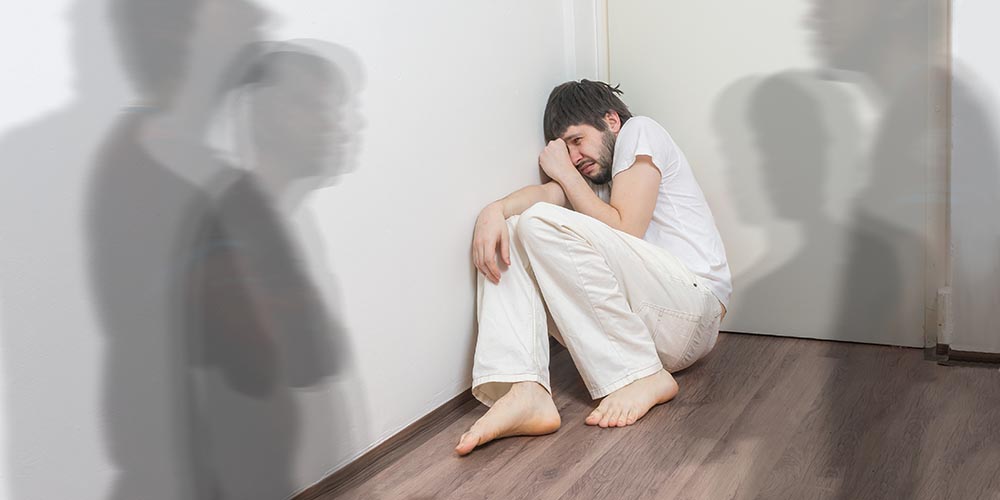Bipolar disorder is a mental health condition, typically characterized by recurrent episodes of extreme mood swings ranging from mania to depression.
While mania is associated with symptoms like being jumpy or wired and feeling extremely happy and energetic (known as bipolar I), depression may make one feel low and hopeless (known as bipolar II).
However, these are the common symptoms of bipolar disorder that people know about.
There are other uncommon symptoms that people may not be aware of. One such symptom is hallucination.
Though hallucinations generally appear during manic episodes, some may experience them during depressive episodes as well.
Hallucinations are dangerous in the view that they can evoke feelings of confusion and terror among people experiencing them.
And the worst part is that patients are unable to understand why it is happening to them.
Before we learn about the association between bipolar disorder and hallucinations, it is important to understand hallucinations.
What Are Hallucinations?
Hallucinations refer to imaginary happenings such as sounds, visions, or smells that seem real to those who experience them.
Hearing human voices in silence is among the most common types of hallucination. These voices may be good, bad, or neutral.
In some cases, the person may follow a command from these voices to cause harm to themselves or others.
Other common hallucinatory experiences may include:
- Having sensations in the body, like something is crawling on the skin or the internal organs are moving
- Hearing sounds, such as approaching footsteps, music, or windows/doors banging.
- Smelling an odor.
- Seeing lights, beings, patterns, or objects that are actually absent.
Sometimes, hallucinations may appear as a part of the grieving process, like hearing or seeing someone one has recently lost.
Experiencing hallucinations in Bipolar Disorder
People with bipolar disorder tend to experience mainly three types of hallucinations, including:
- Visual, or seeing something that is not there
- Somatic, or experiencing something that no one else can see or hear
- Auditory, or hearing things or sounds that no one else can
It is important to note here that hallucinations are generally brief encounters.
Hallucinations are like ‘touch and go’ experiences. Some examples include seeing flashing lights, hearing something, or feeling as if someone touched one’s hand, among others.
These occur as brief encounters. However, in some cases, encounters can last longer and can be elaborate as well, especially in cases of extreme shock or grief in the recent past.
Causes of Hallucinations in People with Bipolar Disorder
While the exact reason of hallucinations in people with bipolar disorder is largely unknown, a few assumptions can be considered for the same, including:
Stress:
A stressful event as severe as losing a loved one may trigger hallucinations, particularly in people living with bipolar disorder. Other common stressors may count such as:
- Traumatic experiences
- Relationship conflict or breakup
- Health concerns
- Family problems or some other grief
- Workplace or financial issues
Some people may also experience hallucinations under tremendous daily stress, or feel anxious or overwhelmed about something in particular.
Medication Side Effects:
Hallucinations may also appear as a side effect of certain antidepressants and antipsychotics used to treat bipolar disorder, such as:
- Tricyclic antidepressants
- Bupropion
- Selective serotonin reuptake inhibitors (SSRIs)
- Olanzapine (Zyprexa)
Lack of Sleep:
Manic episodes tend to deprive people of their much needed sleep. It is significant in the view that sleep deprivation is known as a key risk factor for hallucinations.
Use of Alcohol and Other Substances:
For people addicted to substances, hallucinations may result from:
- Going through withdrawal
- Drinking heavily
- Cannabis use
- Taking cocaine, ecstasy, amphetamines, or hallucinogenics
Time to seek help
For people experiencing or caring for people with hallucinations and bipolar disorder, it is important to identify triggers when they need immediate medical help. These may include:
- Thoughts of violence or self-harm
- Sudden shifts in mood
- Fear that someone wants to hurt your baby, or you do (in cases of recent deliveries)
- A general sense of confusion or disorientation
For any such emergency assistance related to bipolar disorder treatment, call our 24 x 7 helpline 9289086193.
We, at Athena Behavioral Health, offer the best bipolar disorder treatment in India to help people with bipolar disorder enjoy a normal life once again. You can also chat with our representatives for more information about our personalized bipolar disorder treatment programs.
Visit at :Bipolar disorder treatment in gurgaon , Best Psychiatric center in Delhi gurgaon






